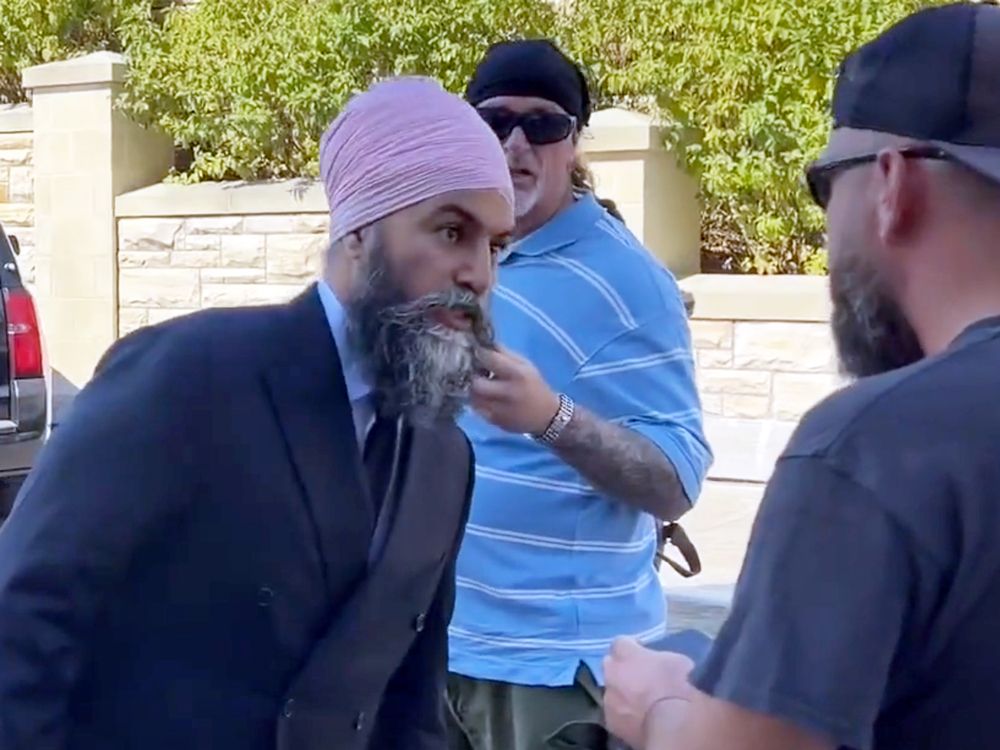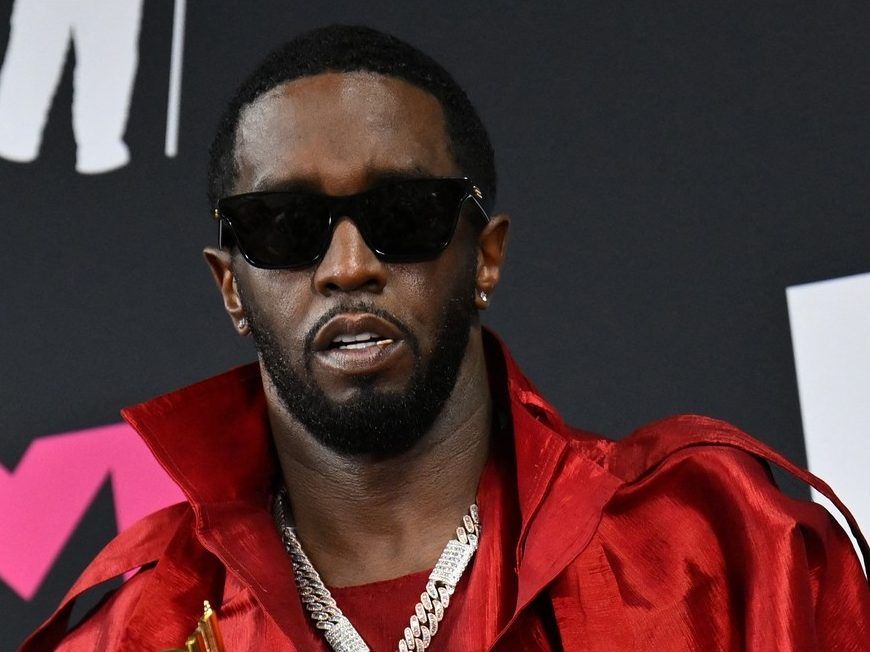Analysis: Consumers struggling to pay carbon taxes at the fuel pump would get a break, but lower-income households helped by climate action tax credit payments would lose the benefit.
Published Sep 14, 2024 • Last updated 0 minutes ago • 4 minute read

Premier David Eby said he vowed to scrap B.C.’s “consumer carbon tax” if there is a change to federal legislation “to stand with people on affordability.”
However, while scrapping the levy would deliver British Columbians a carbon-tax cut, which stands at 17 cents per litre on gasoline and 15 cents per cubic metre of natural gas, it would also take away payments from residents under the province’s climate action tax credit.
Advertisement 2
THIS CONTENT IS RESERVED FOR SUBSCRIBERS ONLY
Subscribe now to read the latest news in your city and across Canada.
- Unlimited online access to articles from across Canada with one account.
- Get exclusive access to the Vancouver Sun ePaper, an electronic replica of the print edition that you can share, download and comment on.
- Enjoy insights and behind-the-scenes analysis from our award-winning journalists.
- Support local journalists and the next generation of journalists.
- Daily puzzles including the New York Times Crossword.
SUBSCRIBE TO UNLOCK MORE ARTICLES
Subscribe now to read the latest news in your city and across Canada.
- Unlimited online access to articles from across Canada with one account.
- Get exclusive access to the Vancouver Sun ePaper, an electronic replica of the print edition that you can share, download and comment on.
- Enjoy insights and behind-the-scenes analysis from our award-winning journalists.
- Support local journalists and the next generation of journalists.
- Daily puzzles including the New York Times Crossword.
REGISTER / SIGN IN TO UNLOCK MORE ARTICLES
Create an account or sign in to continue with your reading experience.
- Access articles from across Canada with one account.
- Share your thoughts and join the conversation in the comments.
- Enjoy additional articles per month.
- Get email updates from your favourite authors.
Sign In or Create an Account
or
Article content
“So that is the potential unfairness in getting rid of the carbon pricing system,” said University of B.C. economist Werner Antweiler. “Without that in place, it means there are winners and losers, and the losers are lower-income households.”
Eby, facing a provincial election on Oct. 19, has witnessed the political pressure on carbon taxes rise with federal Conservative Leader Pierre Poilievre vowing to scrap the national carbon-pricing measures, which backstop’s B.C.’s tax, and B.C. Tory Leader John Rustad promising to scrap B.C.’s tax.
Now this week, federal NDP Leader Jagmeet Singh said his party will oppose Prime Minister Justin Trudeau’s version of carbon pricing and would replace it with a yet-to-be-defined alternative that “doesn’t put the burden on the backs of working people.”
In interviews since, Eby has said B.C.’s carbon tax has worked, but it has also become politicized and become an issue for struggling families who might want to vote for his party, except “the carbon tax was just driving them away.” He made that statement to CKNW’s Jas Johal.
By signing up you consent to receive the above newsletter from Postmedia Network Inc.
Article content
Advertisement 3
Article content
“We don’t want people to have to choose between taking climate action and supporting a government that takes climate action and being able to feed their family and make their rent,” Eby said on the CBC Early Edition on Friday.
Eby’s statements, however, have raised more questions about how his commitment would be put in place than they answer, according to Antweiler, especially when the premier says he will “make sure big polluters pay.”
“That is such a vague and nebulous statement that I find it’s completely not credible,” Antweiler said.
It doesn’t say whether an Eby government would put higher taxes on those emitters or whether he would get rid of the tax breaks given to trade-exposed industries.
It also doesn’t address the questions about the revenue that B.C.’s carbon tax generates now.
B.C. collected $2.6 billion in carbon tax revenue in 2023-24, according to the most recent provincial budget. It’s expecting to collect $2.5 billion in 2024-25, then $3 billion the following year, and $3.5 billion the year after that.
The Finance Ministry didn’t respond to Postmedia News questions on how much of that revenue is attributable to consumers or what consumers pay on average.
Advertisement 4
Article content
Antweiler, however, said who the tax-break winners and tax-credit losers will be will depend largely on income and the amount that consumers spend on fuel and natural gas for home heating.
The tax break for consumers will save 17 cents per litre of gas or 21 cents per litre of diesel for every litre they need to buy, Antweiler said. Then they’ll be able to see the carbon-tax line item on home heating bills.
On the other side, tax-credit payments are income tested with lower-income consumers receiving the most benefit.
Under existing rules, individuals earning up to $41,000, and families up to $57,000, receive the maximum credit, $504 per year for individuals, $756 for couples, or $1,134 for a family of four.
“So it is lower-income households that will lose the most,” at least when it comes to the credit, Antweiler said.
However, there are also lower-income households hurt by the carbon tax, said Simon Fraser University finance professor Andrey Pavlov. Those consumers who can’t afford to live close to their employment and for whom transit isn’t a convenient option for commuting.
Advertisement 5
Article content
“There is this argument that the tax disproportionally affects low-income households and small businesses,” Pavlov said.
His view is that Canada’s carbon taxes are cash grabs that don’t accomplish a lot in terms of reducing greenhouse-gas emissions.
The little information about Eby’s proposal also doesn’t address the potential for the taxes on large polluters to simply be passed on to consumers, according to SFU economist Steeve Mongrain.
“That’s complex because in some markets, the pass-through from the tax to the consumer is very high,” Mongrain said. “Is it worth it to sacrifice the benefit from the carbon tax? That’s what remains to be seen.”
Recommended from Editorial
-

Carbon tax flip-flop shows New Democrats fear they are losing
-

Carson Binda: British Columbians didn't want David Eby to make life more expensive
Bookmark our website and support our journalism: Don’t miss the news you need to know — add VancouverSun.com and TheProvince.com to your bookmarks and sign up for our newsletters here.
You can also support our journalism by becoming a digital subscriber: For just $14 a month, you can get unlimited access to The Vancouver Sun, The Province, National Post and 13 other Canadian news sites. Support us by subscribing today: The Vancouver Sun | The Province.
Article content
.png)
 4 days ago
11
4 days ago
11
































 Bengali (BD) ·
Bengali (BD) ·  English (US) ·
English (US) ·